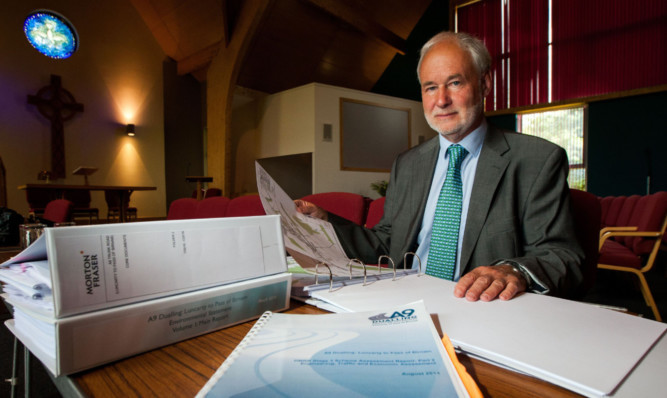Network Rail has dropped its fight against the Scottish Government’s £3 billion plan to dual the A9.
The group, which is responsible for Britain’s railways, was against the proposed use of compulsory purchase powers to buy-up land along the A9 on the edge of Perth.
Rail bosses argued that they needed to retain land at the roadside for essential future maintenance and improvements to the rail line.
It emerged that an 11th hour deal had been struck with Transport Scotland, which allows Network Rail to keep control of more of its land.
The objection was formally dropped on Friday afternoon, ahead of the start of the public inquiry into disputes over the Luncarty-Birnam phase of the dualling plan.
The inquest, held at Bankfoot, was organised by Scottish ministers to hear arguments for and against compulsory purchase bids along the route.
Network Rail was one of several challengers who were expected to speak at the inquiry. However, the majority of objectors have since stood down following further talks with the trunk roads authority.
Instead the day-long inquiry, led by Directorate for Planning and Environmental Appeals reporter Michael Shiel, focused on the remaining objections of two landowners.
Attorneys for the late Patrick Winton, whose former home at Glenordie is at the edge of the route, argue that increased traffic will lead to a loss of privacy and a proposed embankment will overshadow the property.
The other objector, Alexander Lawrence, of Innewan Gardens, Bankfoot, believes the scheme is too close to his home and could pose a safety risk.
Neither opponent spoke at the hearing.
Dr Jo Blewett of Transport Scotland said: “The concerns of the objectors have been carefully considered and have been met where this could reasonably be achieved.”
She confirmed that Network Rail had dropped its objection after amendedments were made to the plans.
Mr Shiel said he would visit Glenordie and was likely to publish his findings before the end of the month.
Transport chiefs hope dualling the whole A9 will curb serious crashes and reduce driver frustration. The project is due to be completed by 2025.
